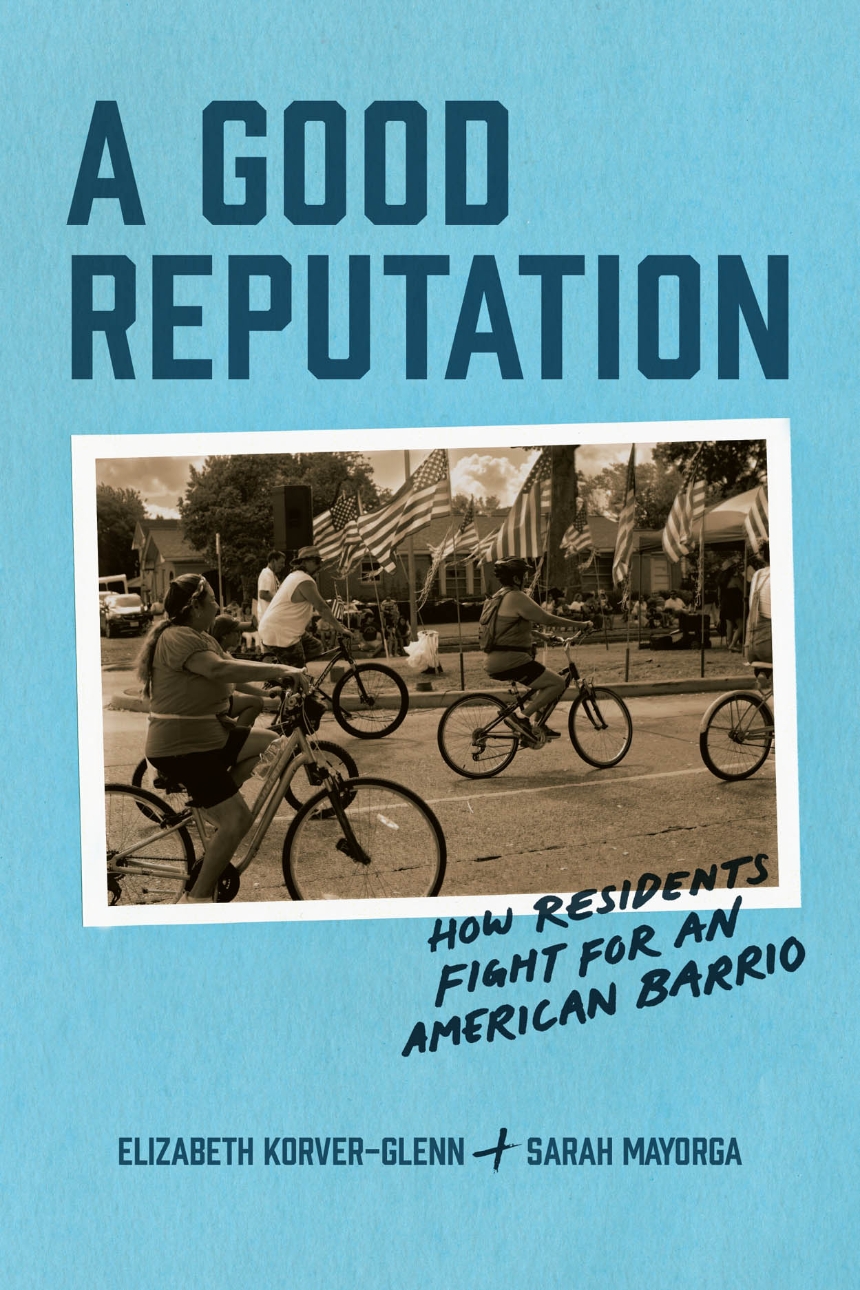A Good Reputation
How Residents Fight for an American Barrio
9780226833859
9780226825779
9780226833842
A Good Reputation
How Residents Fight for an American Barrio
A historic Houston barrio provides an illuminating lens on neighborhood reputation.
Neighborhoods have the power to form significant parts of our worlds and identities. A neighborhood’s reputation, however, doesn’t always match up to how residents see themselves or wish to be seen. The distance between residents’ desires and their environment can profoundly shape neighborhood life.
In A Good Reputation, sociologists Elizabeth Korver-Glenn and Sarah Mayorga delve into the development and transformation of the reputation of Northside, a predominantly Latinx barrio in Houston. Drawing on two years of ethnographic research and in-depth interviews with residents, developers, and other neighborhood stakeholders, the authors show that people’s perceptions of their neighborhoods are essential to understanding urban inequality and poverty. Korver-Glenn and Mayorga’s empirically detailed account of disputes over neighborhood reputation helps readers understand the complexity of high-poverty urban neighborhoods, demonstrating that gentrification is a more complicated and irregular process than existing accounts of urban inequality would suggest. Offering insightful theoretical analysis and compelling narrative threads from understudied communities, A Good Reputation will yield insights for scholars of race and ethnicity, urban planning, and beyond.
Neighborhoods have the power to form significant parts of our worlds and identities. A neighborhood’s reputation, however, doesn’t always match up to how residents see themselves or wish to be seen. The distance between residents’ desires and their environment can profoundly shape neighborhood life.
In A Good Reputation, sociologists Elizabeth Korver-Glenn and Sarah Mayorga delve into the development and transformation of the reputation of Northside, a predominantly Latinx barrio in Houston. Drawing on two years of ethnographic research and in-depth interviews with residents, developers, and other neighborhood stakeholders, the authors show that people’s perceptions of their neighborhoods are essential to understanding urban inequality and poverty. Korver-Glenn and Mayorga’s empirically detailed account of disputes over neighborhood reputation helps readers understand the complexity of high-poverty urban neighborhoods, demonstrating that gentrification is a more complicated and irregular process than existing accounts of urban inequality would suggest. Offering insightful theoretical analysis and compelling narrative threads from understudied communities, A Good Reputation will yield insights for scholars of race and ethnicity, urban planning, and beyond.
208 pages | 14 halftones, 1 tables | 6 x 9 | © 2024
Sociology: Race, Ethnic, and Minority Relations, Social Organization--Stratification, Mobility, Urban and Rural Sociology
Reviews
Table of Contents
Introduction: A Change That Never Came
1: Racial Capitalism, Placemaking, and Neighborhood Reputation
2: Jose Campos Torres and the Moody Park Uprising
3: Para Aquí Institutions
4: Para Llevar Institutions
5: Cleaning or Cultivating?
6: The (Re)Developing Barrio
Conclusion: The Good Fight
Acknowledgments
Methodological Appendix
Notes
Bibliography
Index
1: Racial Capitalism, Placemaking, and Neighborhood Reputation
2: Jose Campos Torres and the Moody Park Uprising
3: Para Aquí Institutions
4: Para Llevar Institutions
5: Cleaning or Cultivating?
6: The (Re)Developing Barrio
Conclusion: The Good Fight
Acknowledgments
Methodological Appendix
Notes
Bibliography
Index
